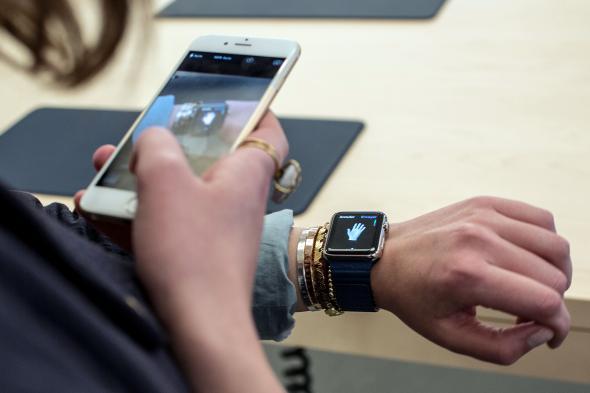A federal judge on Monday ruled that the U.S. government could not compel Apple to unlock an iPhone so that investigators could analyze its data as part of a drug case. U.S. Magistrate Judge James Orenstein’s ruling does not explicitly impact the ongoing legal dispute over the FBI seeking access to San Bernardino shooter Syed Rizwan Farook’s encrypted iPhone, but it does provide some momentum for Apple and its claims that the government’s use of the 1789 All Writs Act as its principle means to force the company to provide access to individual’s data, may not hold up in court.
“After reviewing the facts in the record and the parties’ arguments, I conclude that none of those factors justifies imposing on Apple the obligation to assist the government’s investigation against its will,” Judge Orenstein wrote. The decision makes Orenstein the first federal judge, according to the Washington Post, “to rule that the act does not permit a court to order companies to pull encrypted data off a customer’s phone or tablet.” Here’s more from the Post:
In a 50-page opinion disdainful of the government’s arguments, Orenstein found that the All Writs Act does not apply in instances where Congress had the opportunity but failed to create an authority for the government to get the type of help it was seeking, such as having firms ensure they have a way to obtain data from encrypted phones… He also found that ordering Apple to help the government by extracting data from the iPhone — which belonged to a drug dealer — would place an unreasonable burden on the company. None of the factors he reviewed in the case, Orenstein said, “justifies imposing on Apple the obligation to assist the government’s investigation against its will.”
“A senior Apple executive, who spoke on condition he not be named, said during a call with reporters that Orenstein’s decision would bode well for the company in the San Bernardino case, which has touched off a fierce national debate about the balance between fighting crime and preserving privacy in the digital age,” Reuters reports. “Although U.S. Magistrate Judge Sheri Pym, the judge in the San Bernardino case, will not be bound by Orenstein’s decision, the senior Apple executive said it will likely be influential.”
